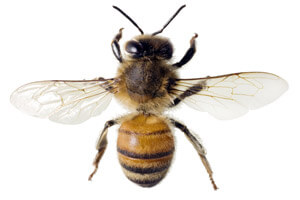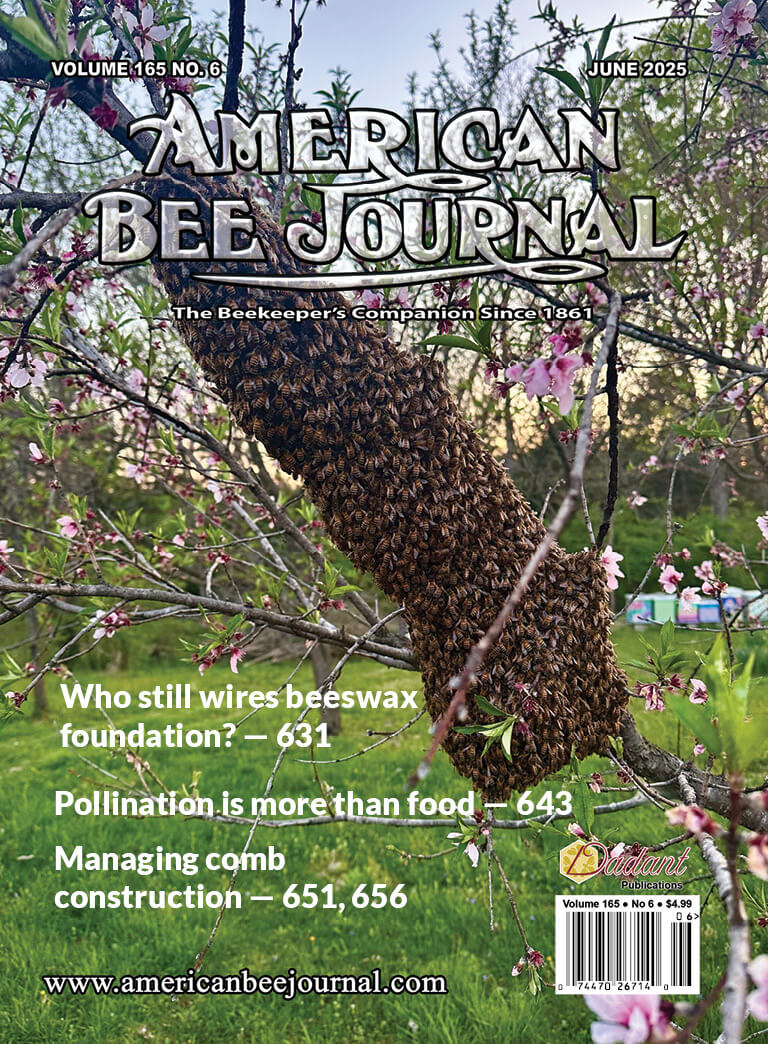
Probably most people on the planet interact with honey bees at some point. Those of us who are beekeepers enjoy developed interactions with honey bees that arise out of a respect for and fascination of the bee. However, the interaction that many other individuals have with honey bees is quite negative, usually resulting from the person getting stung.
There are two common questions/comments that I receive from people when they find out that I work with honey bees. The first is “what is killing all the bees?”. This question moved into first place about ten years ago when elevated colony loss rates put honey bees in the living rooms of people worldwide. Until that time, the second most common question I get asked now was the most common and it is “do you ever get stung?”. This question is a bit humorous to me because it makes a couple of things immediately obvious. First, it tells me that stings are what many, maybe most, people equate with honey bees. That is quite sad if you think about it. Second, it reminds me how mortally terrified people are of getting stung, given the nature and prominence of the question (i.e. someone asks about it before they ask about the many other things one could want to know about honey bees). Finally, it tells me that the person suffers from a momentary lapse in understanding dangers associated with certain jobs. After all, carpenters hit their fingers with hammers, football players get concussions, electricians get shocked, and beekeepers get stung. It should be obvious. If you are considering getting into beekeeping and wonder if you can avoid getting stung – the answer is no. In fact, you will get stung, and you probably will be better off for it. ☺
So, of course I get stung…a lot, probably tens of thousands of times over my beekeeping career. I am sure that I have been stung hundreds of times in one day, likely on multiple occasions. And yes, bee stings still hurt me. They hurt me as much as they hurt anyone. Yet, thousands of other beekeepers around the world and I continue to work with bees regardless of the risk and pain associated with getting stung. Are we crazy, naïve, tough or so captivated by our enjoyment of bees that we accept the stings? I suppose the answer to all of these is yes.
Humor aside, stings are a serious hazard of beekeeping. For most of us, stings are just a minor inconvenience, something that we do not like, but something that we permit given our insatiable desire to keep bees. We may get stung many times, most days, and we think nothing of it. However, for many people, stings pose a significant risk, even a fatal one. Worse yet, beekeepers can have kept bees for decades and suddenly develop an allergy to bee stings. Thus, it seems prudent that all would-be and seasoned beekeepers understand the science of a bee sting, what to do when stung, including how to recognize serious reactions to bee stings, and how to minimize the number of stings one receives.
What is a sting and why do bees have it?
Put simply, a sting is a honey bee’s principal means of defense. The sting (Figure 1) is what bees use to tell the victim that their patience is waning. Bees sting when provoked, harmed, or are in danger. For most people, this means that they inadvertently stepped on a bee while walking barefoot in the yard (do people still do that?) or grabbed a bee when reaching for a flower. When this happens, the bee’s natural instinct kicks in and she delivers her sting.
However, most bee specialists agree that a bee does not have a stinger for purposes of self-defense but rather for purposes of colony defense. Bee colonies are full of developing brood (protein), stored pollen (minerals, vitamins, protein), and honey (carbohydrates) and there are a number of organisms on the planet that want to exploit these stored resources. Given that colonies are full of food, they are a prime target for other insects, birds, mammals and various pests. Bees protect these resources and defend their colonies with their sting. The colony is so important to the individual bee that she will risk her life trying to defend it, altruism in the purest sense. Indeed, honey bees lose their stinger when stinging a tough-skinned invader such as mammals. This loss kills the bee. Thus, a bee’s decision to deploy her sting comes at great cost to her. Interestingly enough, bees can sting organisms with soft tissues, such as other insects, repeatedly.
Honey bees are the only stinging insects that…


